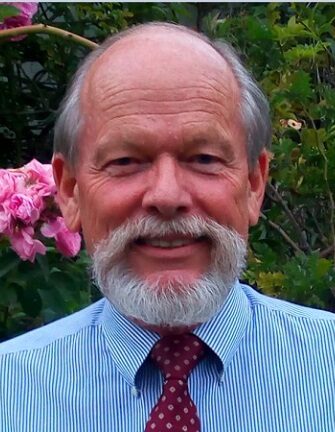Conferencistas Plenarios

Dr. Joaquín Azpiroz Lehan
Universidad Autónoma Metropolitana - México
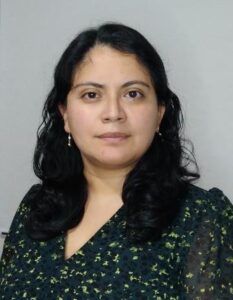
Dra. Fanny Casado Peña
Pontificia Universidad Católica - Perú
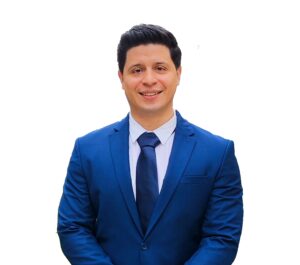
Dr. Luis Carlos Estrada Petrocelli
Universidad Latina - Panamá
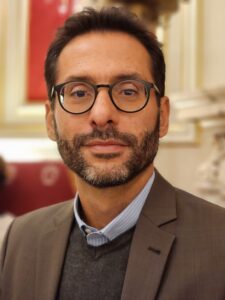
Dr. Anselmo Frizera
Universidade Federal do Espírito Santo - Brasil

Dra. Natalia López Celani
Univ. Nacional y Ministerio de Salud de San Juan - Argentina
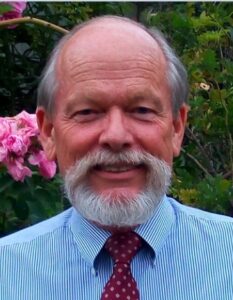
Dr. Fred Hosea
IFMBE Clinical Engineering Division - USA
Joaquin Azpiroz Leehan Ph.D
“Results of half a century of Biomedical Engineering in Mexico and South/Central America”
Joaquín Azpiroz-Leehan was born in Mexico City in 1956. He obtained his Engineering and Master’s degrees in Biomedical Engineering from Universidad Autónoma Metropolitana in 1980 and 1988 with his thesis centered on the development of a coprocessor for biomedical signal analysis. He received his Ph.D. degree from Université de Technologie de Compiègne, France in 1992 on the development of an image compression subsystem using DSPs.
Since 1983 he has been with Universidad Autónoma Metropolitana, where he was Head of the Electrical Engineering Department from 1993 to 1997, and where he is presently Professor of Biomedical Engineering. He has lectured in over 100 courses, mostly on image processing, computer architecture, and medical applications and interfacing of microprocessors and microcomputers. He has been a long-time member of the Mexican Society of Biomedical Engineering (Sociedad Mexicana de Ingeniería Biomédica) and of IEEE-EMBS (Senior Life Member).
He has worked on many different facets of Biomedical Engineering: from designing and building custom instrumentation for physiological & biophysical experiments, hardware-based signal processing systems, image processing, and the design and development of medical devices. Another field las been MR imaging (structural and functional), with special emphasis is on effects of environmental and workplace inhalation of pollutants and solvents. Another important interest has been BME Education.
He has co-written two books, one on Medical Imaging and another one on Image Processing. Since 1993 he has been Associate Editor of the Mexican Journal of Biomedical Engineering (Revista Mexicana de Ingeniería Biomédica).

Fanny Casado Ph.D
“Leading Innovation during uncertain times: Lessons and Opportunities”
Dr. Casado was a Postdoctoral Research Fellow in the Stem Cells and Cancer Research Institute at McMaster University, and a Graduate Research Assistant un Environmental Medicine at University of Rochester Medical Center.
Dr. Casado has expertise in the pre-market and post-market evaluation of health products and products of biotechnological origin. Academically, she leads interdisciplinary projects to implement safe technologies for people and the environment by integrating methodologies for the design, development, and validation of drugs, cell therapies, and medical devices. She directed the Institute of Omics Sciences and Applied Biotechnology between 2019-2021. Currently, she leads the Bio-engineering Section at Pontificia Universidad Catolica del Peru. She is a Full Member of the American Society of Toxicology, and Senior Member of the Engineering Society in Medicine and Biology.
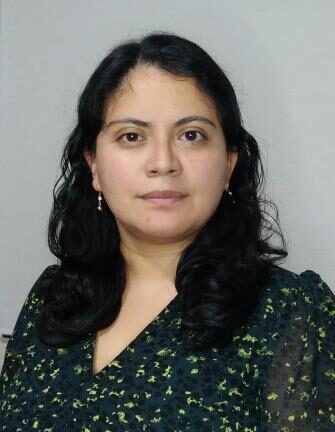
Luis Carlos Estrada Petrocelli Ph.D
“Health Innovation through Recording Cardiorespiratory Signals with Biomedical
Technology and Their Processing: Advances and Perspectives”
Luis Carlos Estrada Petrocelli earned his degree in Biomedical Engineering from Universidad Latina de Panamá (ULATINA) in 2004, graduating Summa Cum Laude and achieving the second highest honor. He pursued a Master’s in Biomedical Engineering in 2009, awarded by Universitat de Barcelona (UB) and Universitat Politécnica de Catalunya (UPC)-Barcelona Tech. In 2010, thanks to an ERASMUS-COLUMBUS (ERACOL) scholarship from the European Commission, he undertook a research stay at Politecnico di Torino, Italy. With a scholarship from the Secretaría Nacional de Ciencia, Tecnología e Innovación (SENACYT), he achieved his Doctorate in Biomedical Engineering in 2016 at UPC-Barcelona Tech and the University of Zaragoza, achieving the distinction of Excellent Cum Laude.
From 2017 to 2022, Estrada Petrocelli conducted postdoctoral research at the Institute for Bioengineering of Catalonia (IBEC), The Barcelona Institute of Science and Technology (BIST), Barcelona, Spain, and at the Department of Respiratory Medicine at King’s College London (KCL), London, United Kingdom, supported by a fellowship from the European Respiratory Society (ERS). Currently, Estrada Petrocelli holds the position of Associate Professor at ULATINA and leads the Biomedical Engineering and Instrumentation Program. He is part of the SENACYT Scholarship Insertion Program and is a member of the National Research System (SNI). Furthermore, he serves as the vice-president of the Medicine and Biology Chapter (EMBS) of the Institute of Electrical and Electronics Engineers (IEEE) in Panama. His expertise includes the analysis, processing, and interpretation of biomedical signals, as well as the use of advanced medical sensors and instrumentation for the study of the cardiorespiratory system.

Anselmo Frizera Ph.D
“Development of serious games and mixed reality environments for rehabilitation robotics”
Anselmo Frizera holds a bachelor’s degree in electrical engineering (2006) from the Federal University of Espírito Santo (UFES, Brazil) and a PhD (2010) in Electronics from Universidad de Alcalá (UAH, Spain). Between 2006 and 2010, he worked as a researcher at the Bioengineering Group of the Consejo Superior de Investigaciones Cientificas (CSIC, Spain), where he carried out research relating to his doctoral studies. Since December 2010, he has been a Professor in the Department of Electrical Engineering and Permanent Professor of the Postgraduate Program in Electrical Engineering (PPGEE), both at UFES. For three years, he was included in the Top 2% Scientists List from Stanford University. He was selected as IEEE Impact Creator and IEEE/EMBS Distinguished Lecturer. Currently, he is a Senior Member of IEEE and holds a position on the Administrative Council of the Asociación Iberoamericana de Tecnologías de Apoyo a la Discapacidad (AITADIS), contributing to the dissemination of knowledge in assistive and disability support technologies in countries in Latin America and the Iberian Peninsula. His research interests and areas of activity include Rehabilitation Robotics and the development of optical and electronic sensors for applications in Industrial and Biomedical Engineering.

Natalia Lopez Celani Ph.D
“Exploring the Applications of Neuromodulation and Neuroengineering: Enhancing Human Competences and Quality of Life”
Natalia Lopez received the bachelor’s degree in Biomedical Engineering and Master’s and Doctorate degrees in Control Engineering from Universidad Nacional de San Juan (UNSJ) in 2001, 2007 and 2010, respectively. In 2003 she joined the Medical Technology Department of UNSJ, where she is currently an Associate Professor while holding the position of assistant investigator from the CONICET (National Council of Scientific Technical Research). Her research is focused on biomedical signal processing, especially electromyographic signals, neuromodulation, assistive devices, and the application of robotics in neurorehabilitation.
She has supervised several doctoral and degree dissertations of Biomedical and Electronic Engineering students, specially focused in biomedical instrumentation, signal processing and pattern recognition. Since 2006 she is professor of the Biomedical Engineering degree program. In this role, she has promoted the creation of vocational research groups of degree students, and student’s activities such as workshops and short courses. She has received 9 national awards as thesis director or leader of a research team.
She is IEEE Senior Member since 2018, has served as EMBS Officer in several roles, being currently Chair of Argentina IEEE Section since 2022. She belongs to the IEEE honor society HKN. In Argentina, she has been Regional Delegate of Cuyo of the Argentine Society of Bioengineering (SABI) in the years 2006 and 2007, and served as Secretary of the Society. Currently, she alternates academic and scientific activities with the Direction of Technological Resources and Innovation at the Ministry of Health of San Juan, Argentina.

Fred Hosea III Ph.D
“A continental network of healthcare innovation centers in Latin America”
Current initiative: prototyping of a Global Health Innovation Registry, using semantic web data science to enable low-cost, rapid-cycle collaborations across stakeholder groups to address system lifecycle performance requirements at the design stage.
Prior expertises: Cross-functional planning for enterprise-scale healthcare technologies. Business process modeling and improvement. Integration of technological changes into organization innovation process, to insure smooth transitions and improved lifecycle management. Innovation methodology and capacity building for improving collaboration and system-lifecycle design among global innovators.
Specialties: Enterprise innovation strategy, IT asset management, technical support planning, technology assessment, transition planning.
